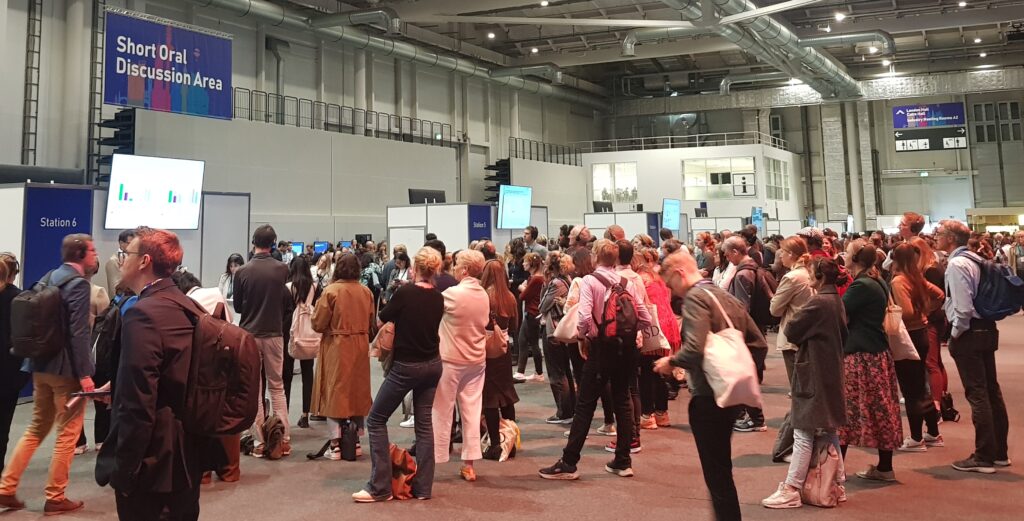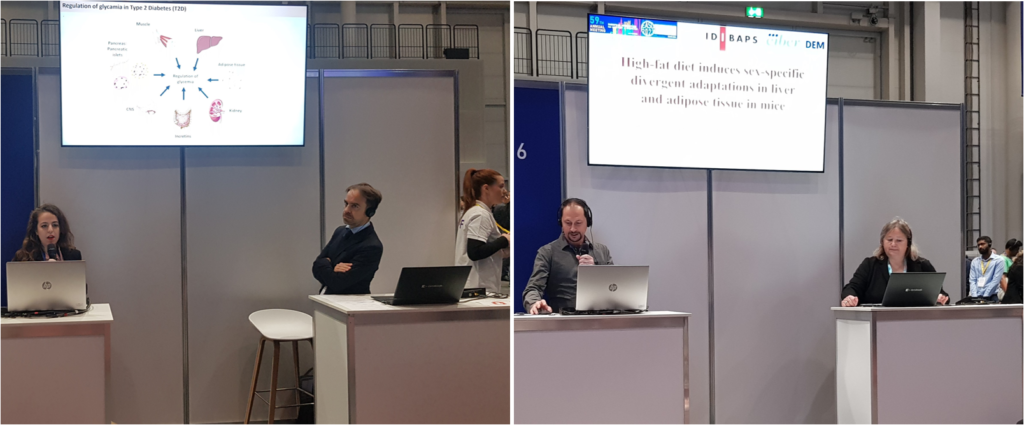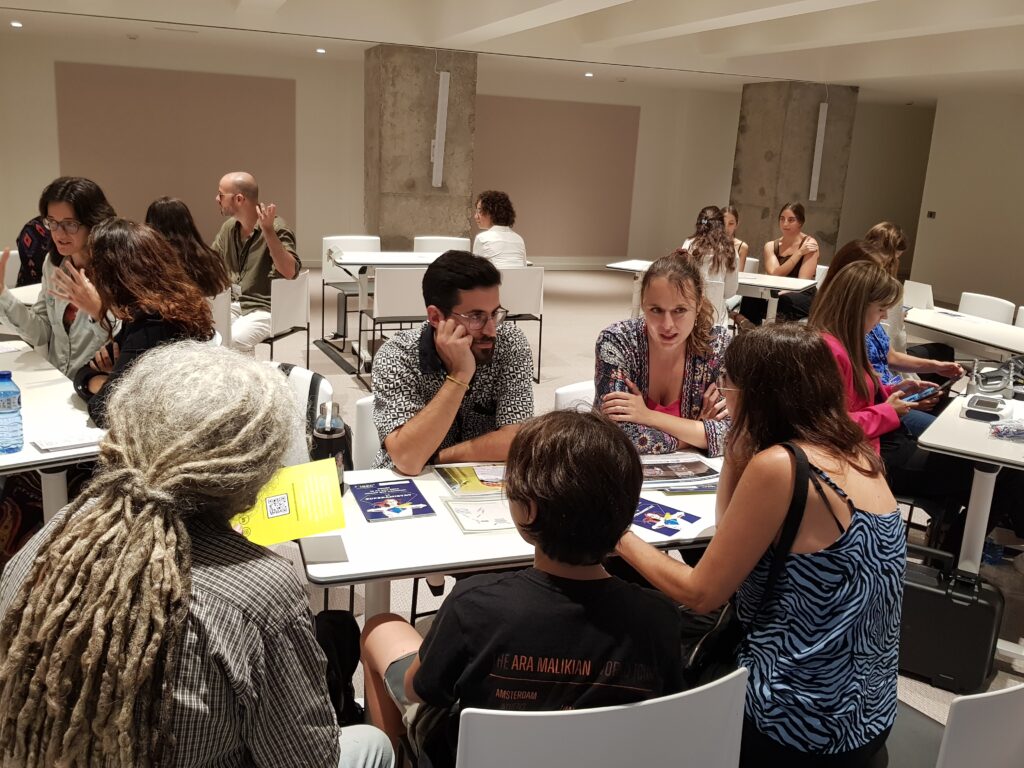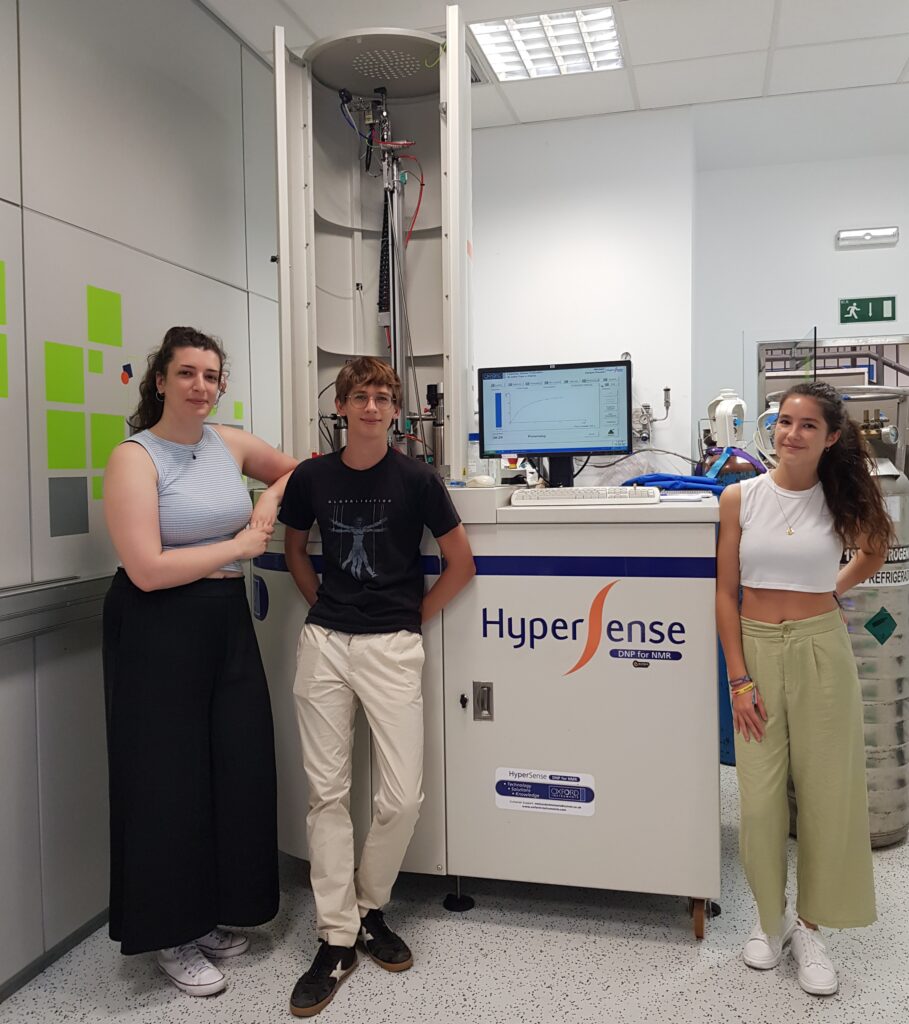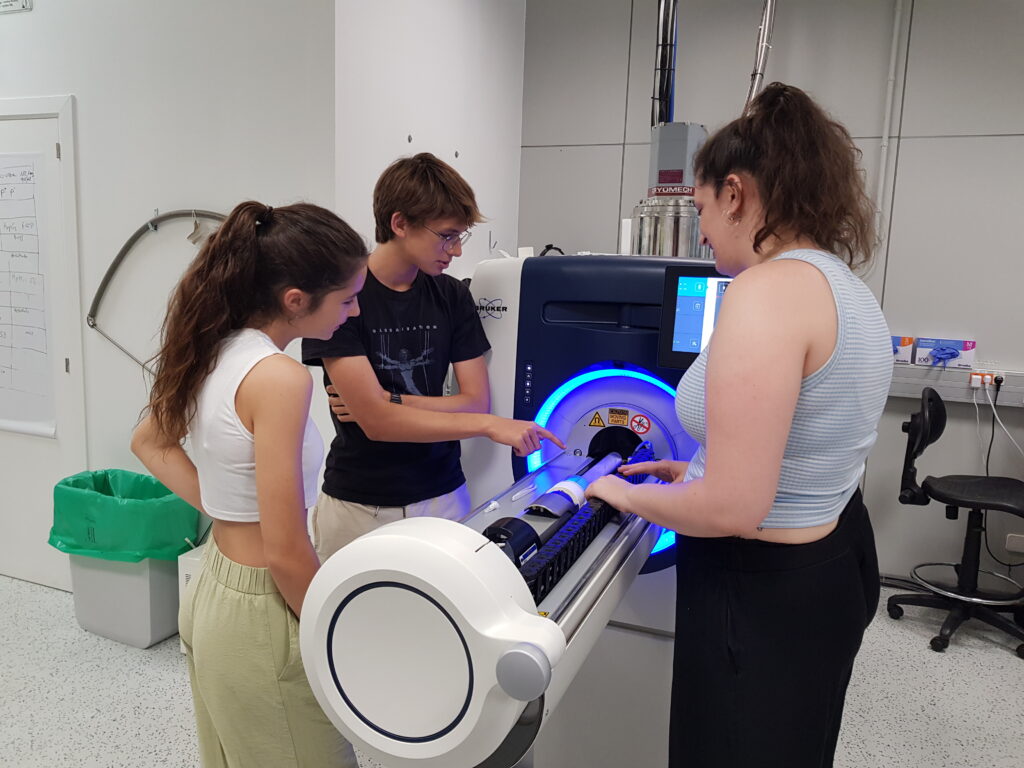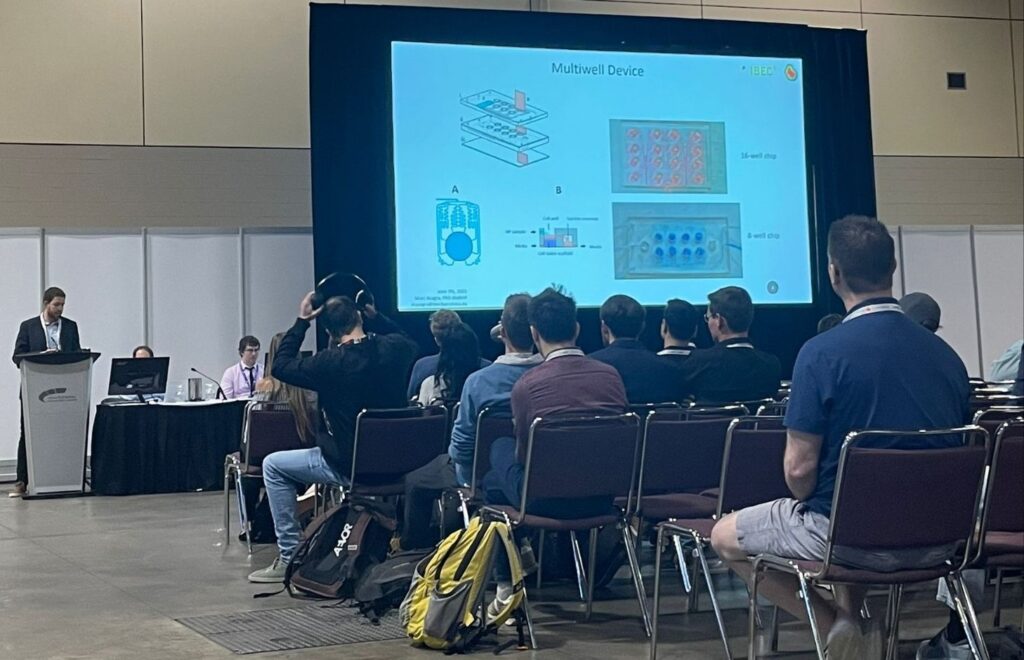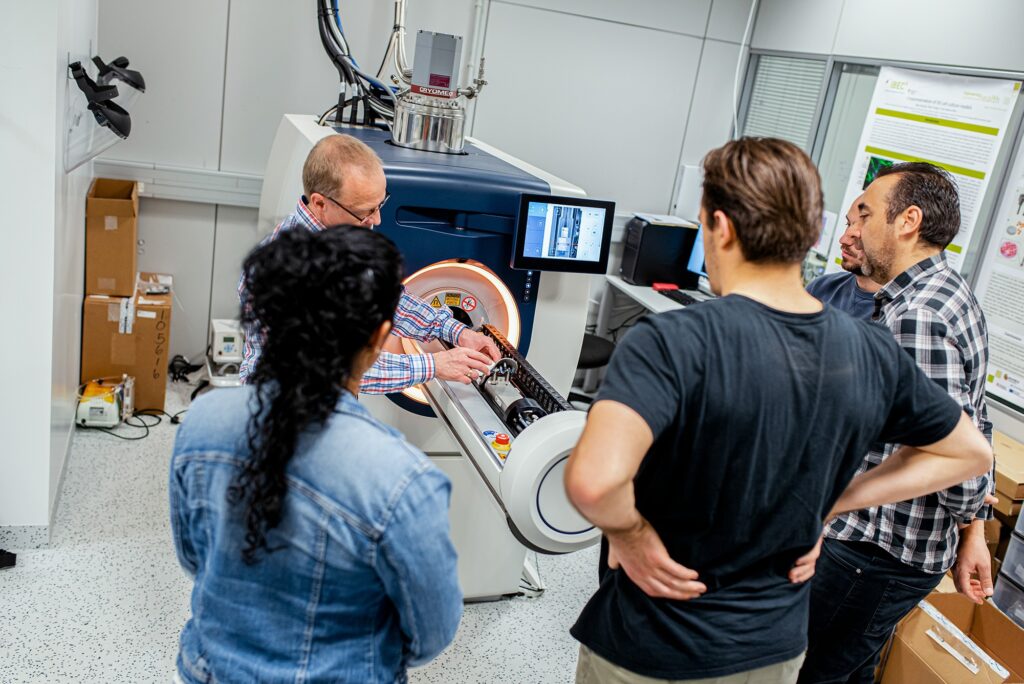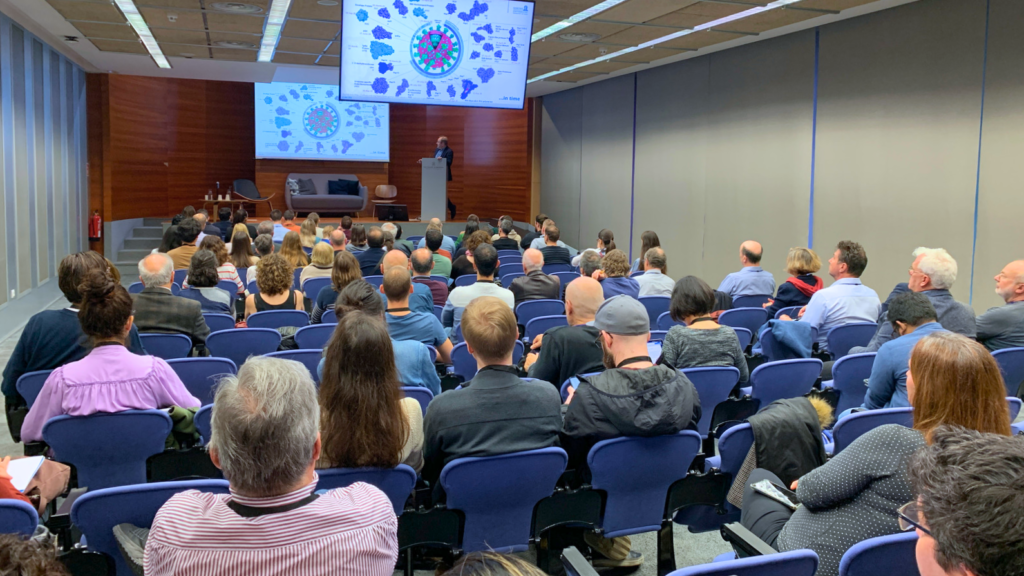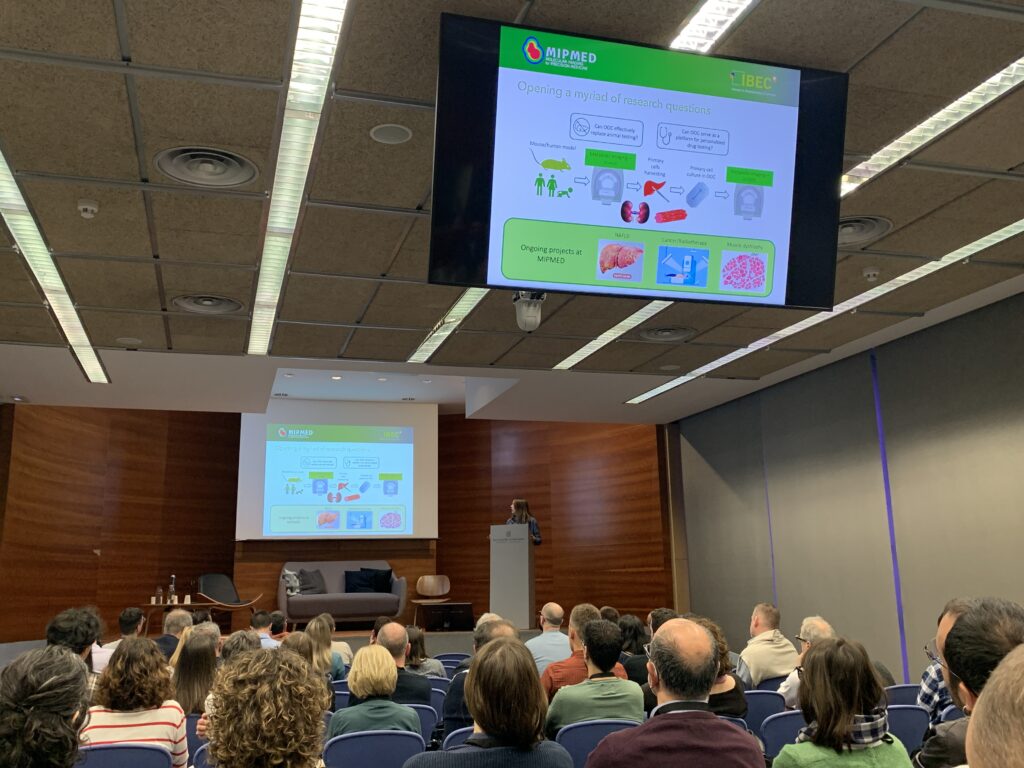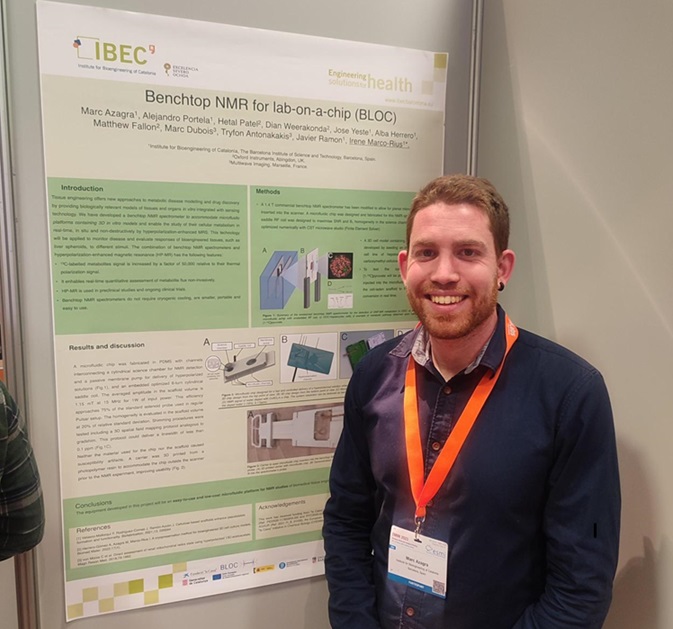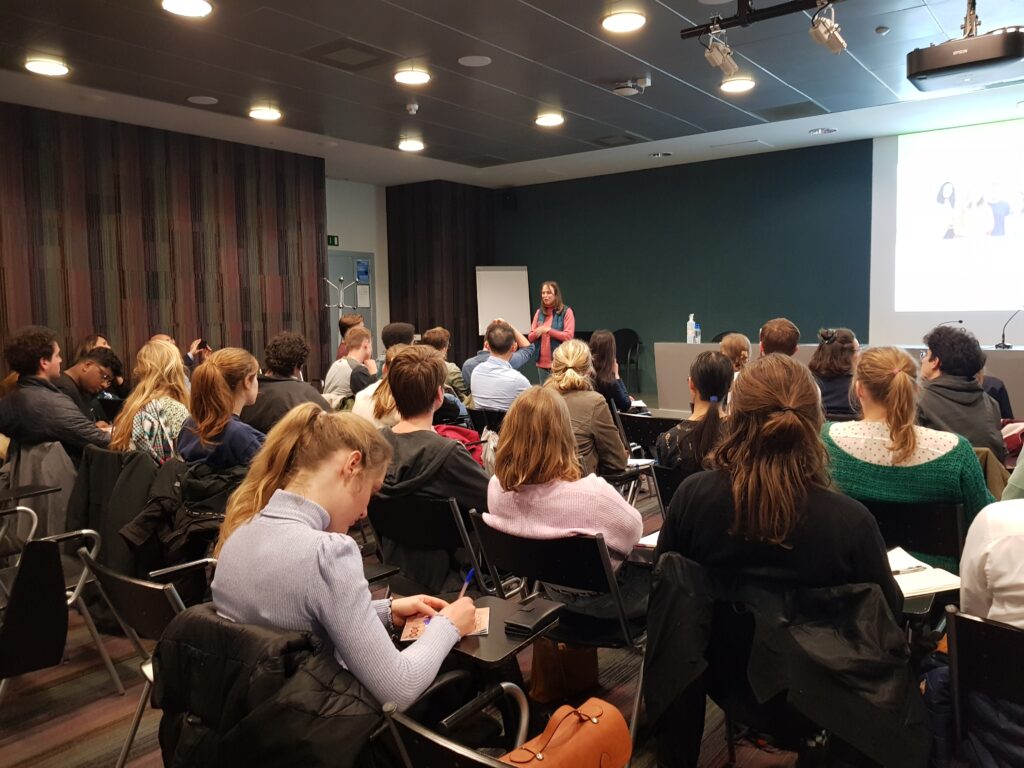Last week, after the final project meeting, took place the BLOC Symposium and Workshop at the Institute for Bioengineering of Catalonia (IBEC) with very interesting talks and a hands-on workshop to see, first hand, the benchtop NMR spectrometer developed during the project.
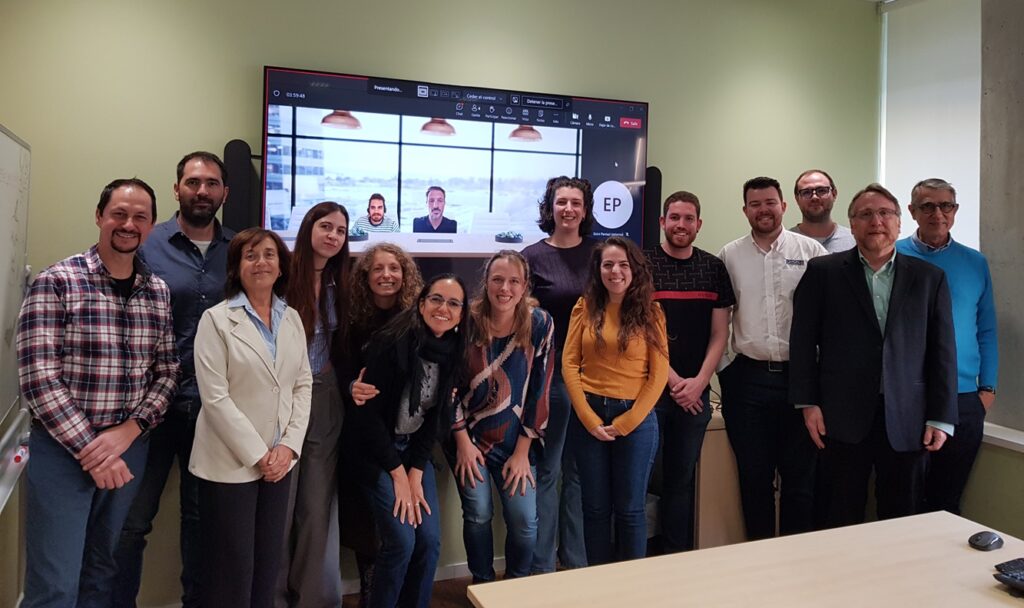
BLOC project is getting close to the end… Last 07th of November BLOC researchers had the final meeting at the Consorci Institut d’Investigacions Biomediques August Pi i Sunyer (IDIBAPS) in Barcelona to debate the results and how to improve the benchtop NMR spectrometer. It was time for great discussions with the advisory board and all the project partners, and to think about future steps to bring this new technology closer to the clinic and the society.
Taking profit of the presence of most of the partners together in Barcelona, a Symposium and Workshop was organized at IBEC, on the 8th of November, focused on the fields of MRI, NMR and hyperpolarization. Renowned international researchers in these areas included Dan Vigneron (University of California), Steffan Glöggler (Max Planck Institute), Dragana Savic (INIA Biosciences & visiting scholar at University of Oxford) and Gabriele Stevanato (Università di Padova).
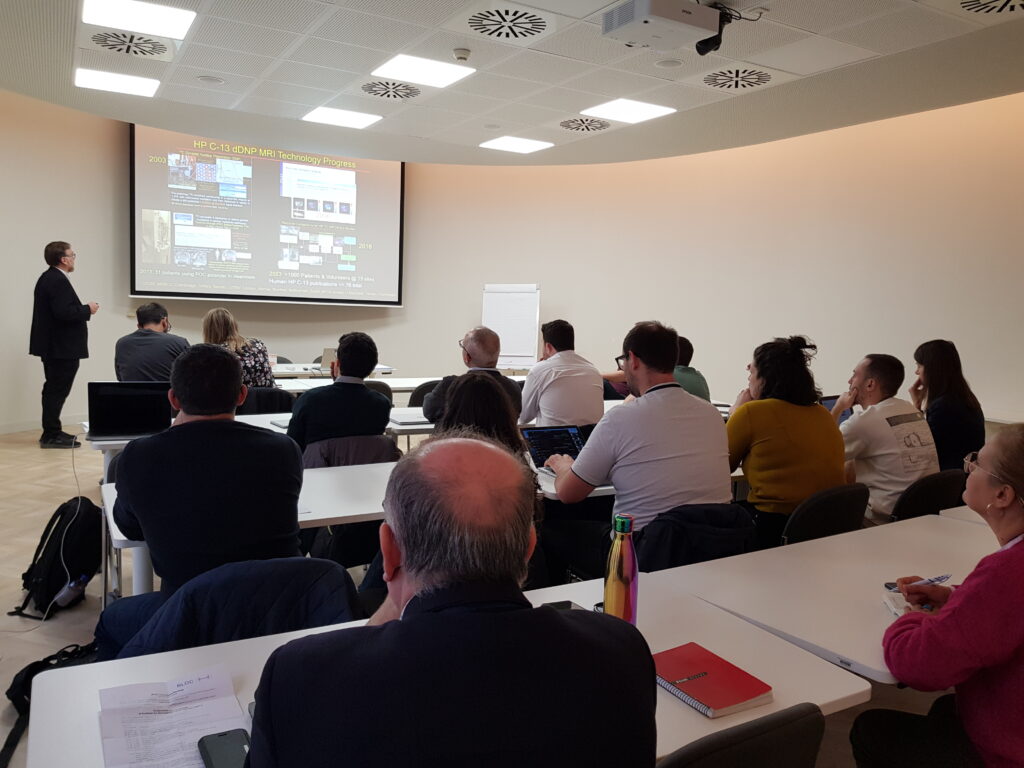
Subjects as “Benchtop NMR in the Circular Economy and Consumer Products Surveillance: Challenges and Some (partial) Solutions” and “Across cities DNP: hyperpolarized MR without a polarizer” were presented by Javier Sardina (Universidad de Santiago de Compostela) and Andrea Capozzi (EPFL) respectively.
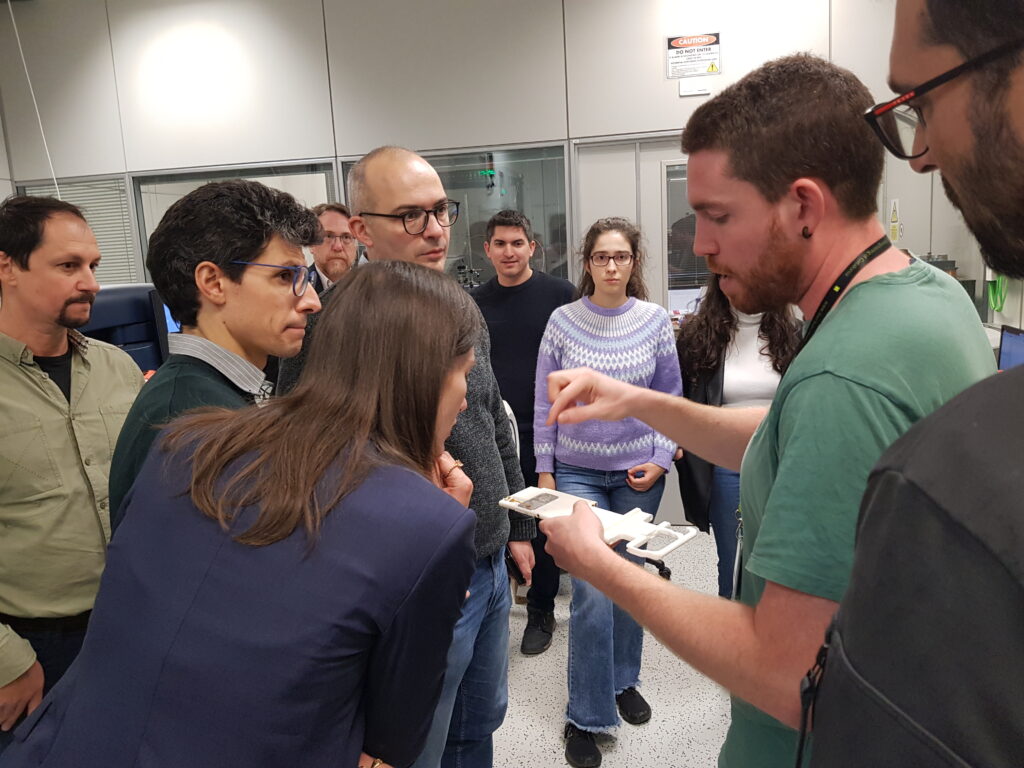
After the talks, attendees had the opportunity to participate in a workshop to see, first hand, the new BLOC benchtop spectrometer to study metabolism in real-time and non-destructively by hyperpolarization-enhanced MRS. Additionally, they also saw the MRI machine and the hyperpolarizer, all located at Irene Marco’s laboratory at IBEC.
To finalize, the event was wrapped up with a round table about NMR and its applications in the field of biomedicine, with the participation of Michael Tayler (Photonic Sciences Institute, ICFO), Gabriele Stevanato, Dragana Savic, Andrea Capozzi, Dan Vigneron, Javier Sardina and Billy Halle (Oxford Instruments, OI).
It was a very fruitful moment to exchange ideas, reinforce networks and to construct new starting points for future exciting projects.
